Rewind Review: Severance, "Defiant Jazz" | Season 1, Episode 7
A big ending makes a statement on whether Severance is a "Theory" show
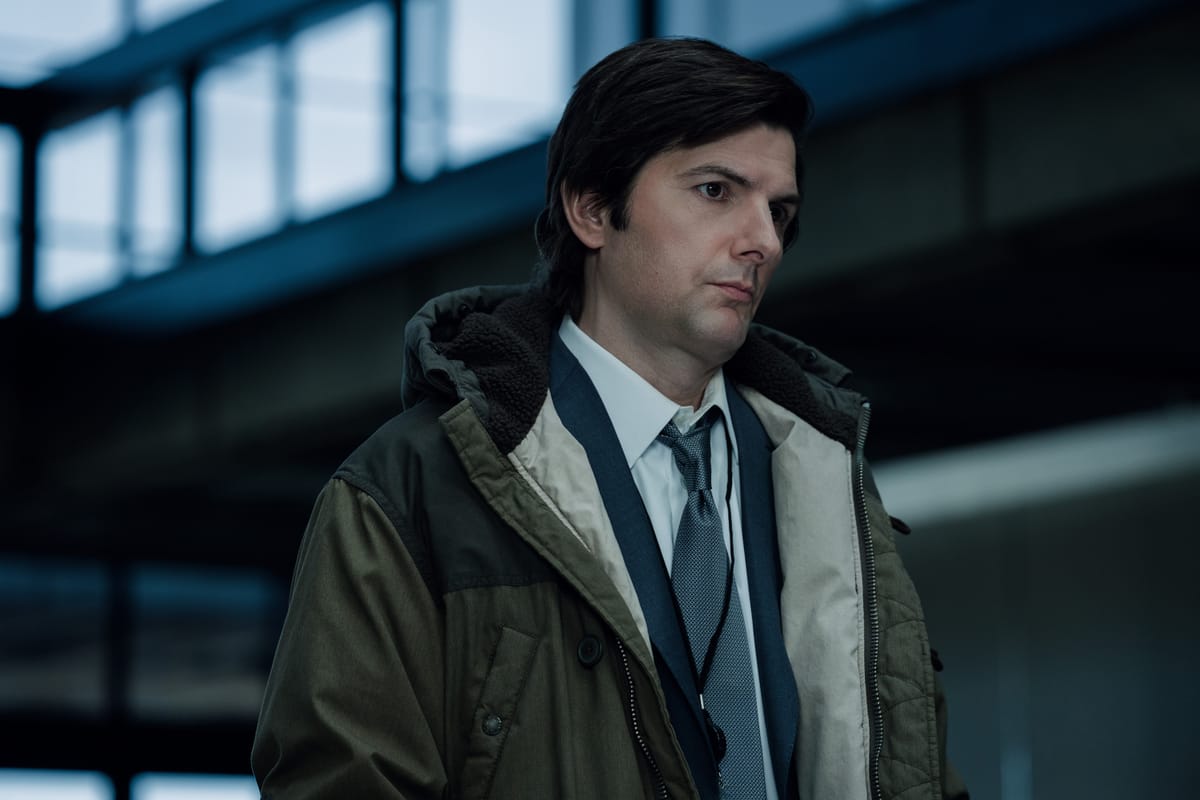
In the lead up to the second season premiere of Apple TV+’s Severance, I’m sending subscribers my reviews of the first season, which were the first I wrote for the newsletter.
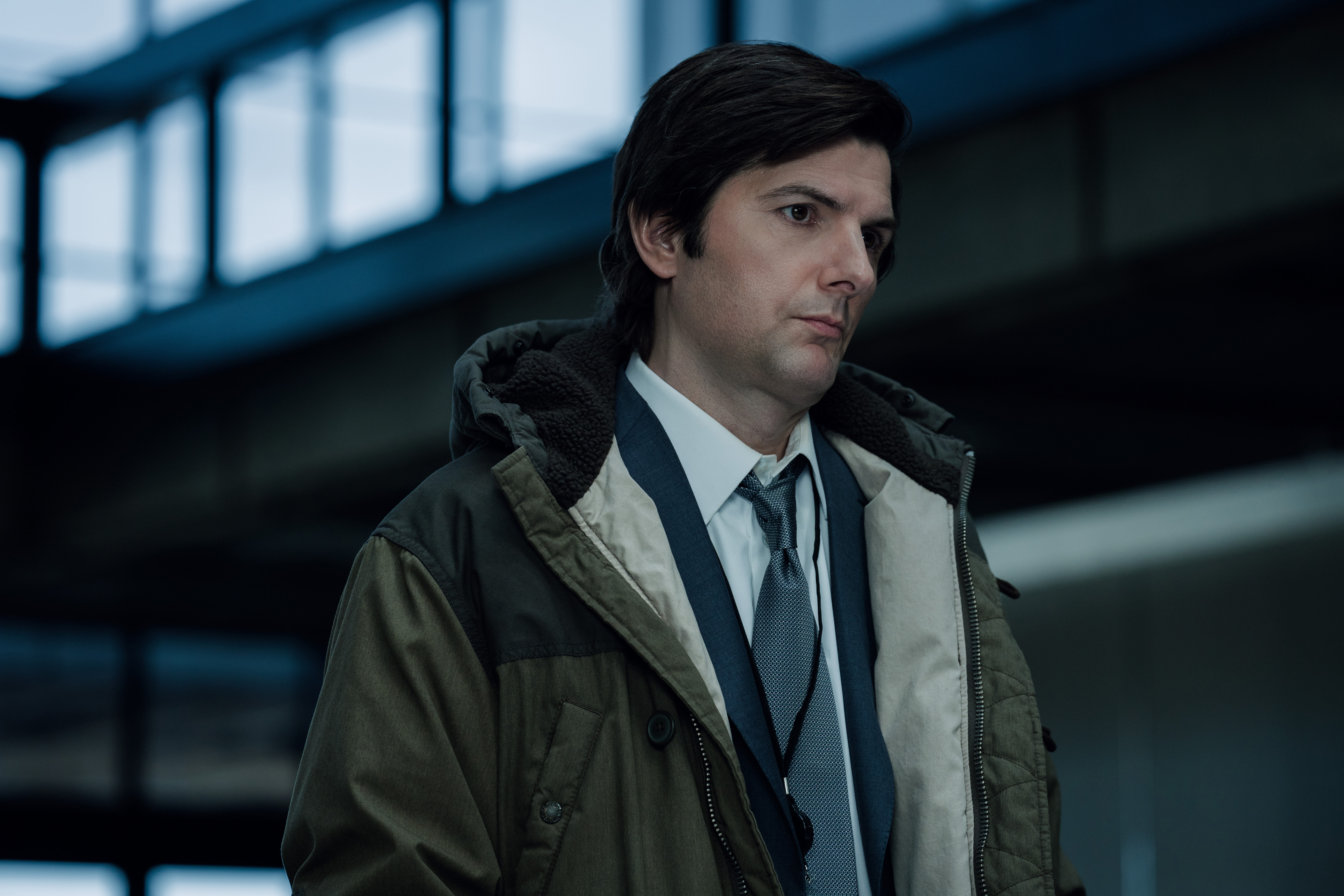
To join the conversation in the original reviews (you can find the comments at the link above), read them faster than the weekly emails, and make sure you receive my coverage of season two, become a paid subscriber today.
Over the weekend, Desus & Mero head writer Josh Gondelman tweeted asking if people had any recommendations for recaps of Severance.
Is anyone reading Severance recaps that they like?
— Josh Gondelman (@joshgondelman) 7:07 AM ∙ Mar 20, 2022
A few folks were kind enough to recommend my own, but after I got looped into the thread I was more intrigued by this reply.
@joshgondelman i love recaps! but for this show, i read all of the handwringing takes on reddit instead.
— imaginary cat (@walk_good) 2:39 PM ∙ Mar 20, 2022
Back in 2016, I wrote a piece for the online scholarly journal Flow about the coverage of the first season of Westworld, and how the economy of online journalism turned it into a show about theories despite a lack of textual evidence to support it early in its first season. My argument was that as sites like Reddit emerged as a competitor to traditional recaps or reviews as spaces where fans congregate to talk TV, there was a clear incentive to embrace a theory-focused framing of a given show, regardless of the text itself.
And so it was interesting to me to see this individual frame Severance as a Reddit show, and it made me wonder: was Josh looking for recaps that saw the show through this lens? Because in part based on the philosophical objection I raised in that piece over five years ago, and in part because it’s my natural instinct, I tend to resist viewing any show as a puzzle show. I’ve certainly naturally used these reviews as an opportunity to work through questions I have about this world and the implications therein, but that’s never been a foregrounding principle in my reception of the show, or in these reviews.
I had this on my mind, though, when I sat down to watch my screener of “Defiant Jazz,” wondering if the season’s third act would validate the idea of Severance as a show about theories and puzzles, or if it would veer in a different direction. And while most of the episode is a fairly straightforward rising action that pushes the story forward both inside and outside of Lumon (especially the former), it’s hard not to read the ending as a flashing billboard that the Reddit theorizers ultimately had the right idea about what kind of show Severance wants to be.
I don’t know if I would have independently come to the conclusion that it was possible “Ms. Casey” might in fact be Mark’s late wife Gemma. But when it came across my Twitter feed sometime over the past few weeks, it made sense: Cobel’s use of the candle, Mark sculpting the tree, the ships passing moment on the way to the break room, it all fits. It’s definitely positioned as a big reveal, and I’d love to know how I would have reacted if I hadn’t been exposed to the theory ahead of time. But regardless of my being “spoiled” on this possibility, it’s definitely the show’s biggest “twist” yet in terms of what’s really happening on the severed floor at Lumon.

But here’s the thing about thinking of Severance as a puzzle show and this as a confirmation of a theory: does it change our perception of the show’s premise or storyline? As it stood, we had copious evidence that Cobel was taking a special interest in Mark, whether through posing as his kooky neighbor, initiating contact with his sister, or the “wellness” session that first clued the audience into the fact that Ms. Casey was actually Gemma. And so while there are certainly logistical questions about what exactly Ms. Casey is—did they fake Gemma’s death? Was severance somehow a way of saving her life?—that I’m puzzling over, we didn’t actually get any closer to clarity on what Cobel’s long game is. Is a show a puzzle show when the “solution” doesn’t get us closer to understanding what’s going on?
Essentially, “Defiant Jazz” reinforces why I am loath to foreground theorizing in following a serialized drama like this. I understand the value people get from it, but it creates this never-ending series of moments that you build up to be the “solution” but only end up generating more questions. As someone who wasn’t really seeing the show through the lens of puzzles and theories, I don’t necessarily need this reveal to unlock deeper meaning. It’s definitely running the risk of exhausting an audience still desperate for some answers, and it probably has to be the last such reveal before some clarity is achieved if they’re going to bring the season arc to a meaningful conclusion, but if all it does is add another layer to the existing complexity of Harmony’s deal with Mark, that’s fine. And similarly, if your reaction is less “okay, sure” and more a red-stringed bulletin board imagining the psychic traumas being explored in all of the other characters, all the power to you.
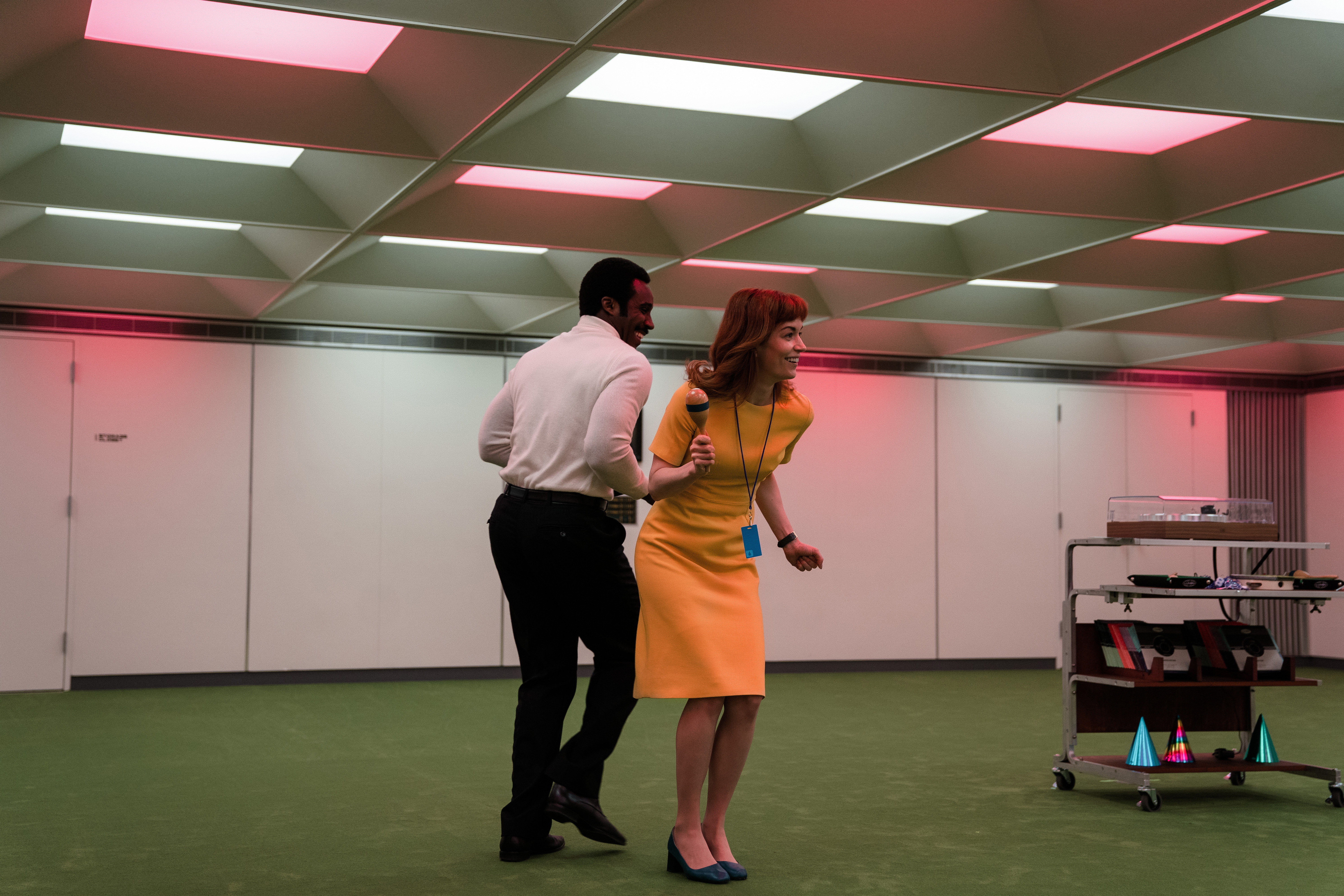
Speaking of psychic traumas, “Defiant Jazz” is all about the rest of Macrodata Refinement coming around to Helly’s dissident spirit. With Cobel busy dealing with Petey’s reintegration and her obsession with Mark, Milchick is left to deal with the threat of the mingling departments on his own, beginning with Dylan’s “Overtime Contingency” wakeup at home and continuing with a 5-minute Music Dance Experience to distract the department from the ongoing disruptions. It’s a trippy scene, beautifully shot and realized, but it’s striking in part because you can see it working on Mark, Helly, and Irving. All three of them have plenty of reason to be furious with Lumon, but this perk is breaking down their defenses, which makes sense if you live a life devoid of culture and are suddenly given access to defiant jazz and maracas.
But it isn’t working on Dylan, who it was really targeted at above all else: the second he steps off the elevator he’s asking Milchick what the hell he just saw, and wants to know more about his son. Milchick clearly has reason to believe that perks—Dylan’s entire personality—will be enough to distract him from the glimpse of his son, but he seems to be operating without a net here. He hasn’t looped in Cobel on any of this, and as the story progresses you sense he is making it up as he goes along. This is how he ends up on the ground with bite marks in his arm, with Dylan demanding to know his son’s name, and suddenly another member of Macrodata Refinement is fully committed to tearing down the Lumon establishment just as Mark reaches into his pocket to find the literal key to doing so.
The pacing of Severance is probably its biggest hurdle, but I will say that I appreciated the diverse glimpse of how each of these individuals reached this point. Helly was there from the moment she arrived, while Mark needed the time to evaluate his priorities, read Ricken’s book, and come to terms with the idea logically. Irving, though, was the truest believer of all, but was overcome by emotion, here escalated by the realization that Burt G. being forcibly retired is Lumon’s way of disrupting their attempts to organize. But while it took Irving some amount of time to come to terms with what he was feeling and reconcile it with his beliefs, Dylan is radicalized in a single flash of a moment, unable to focus on anything other than the idea that he has a son that is being kept from him.
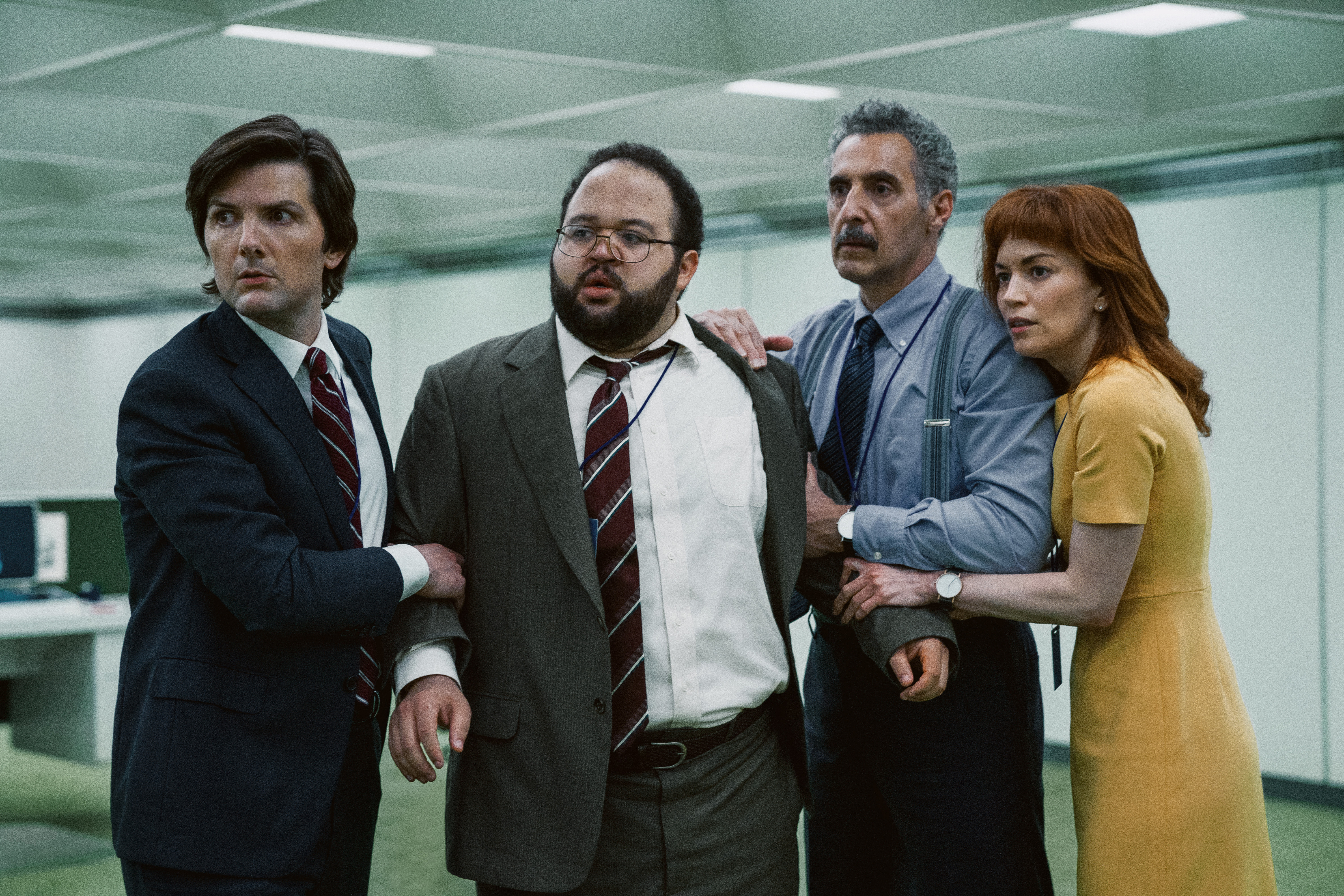
Burt’s retirement party gives us a glimpse of what Petey never received: a tearful goodbye for the person he was on the inside from his colleagues, and a fractured goodbye from his Outie that pays tribute to a man he does not know, and colleagues he neither knows nor will remember. And while Burt’s coworkers in Optics & Design sense some of the cosmic cruelty of this, Irving is the only one who calls it what it is: they’re watching the man they know, and the man he loves, die. It’s the final straw for Irving, and brings the inside lives of the severed floor to its big heist moment: a plan to activate the Overtime Contingency manually, with the goal of bringing down Lumon from the outside. And while not all aspects of the show’s pacing have worked in terms of our understanding of this world, the varied ways each of the four of them reached this point of no return was effective, and brought a lot of momentum to “Defiant Jazz.”
There’s admittedly less momentum on the outside, at least not as a story in its own right, which makes sense given how both the “twist” and the Overtime Contingency plan suggest the convergence of those worlds. Ragabi murdering Graner jumpstarts the Inside story more than the Outside one, as everything else she has to say is all pretty basic philosophical questions regarding the ethics of severance that we’ve already been over. The central tragedy of Mark is that no part of his life will ever be whole: he severed himself to try to escape the tragedy, but all it did was bring more complication to his life. This leads to pushing away Alexa, diving back into the bottle, and eventually the manic destruction of his wife’s photo that brings us to the episode’s big reveal.
And while that reveal only creates more questions about the whole deal with Mark, it really does feel like there’s nowhere else for this story to go but to its endpoint. Whereas last week’s episode felt like half a story, this creates a clean jumping off point, and sets up a conclusion where I don’t really have a clear sense of what the show intends to do. And as long as the show delivers something satisfying, that uncertainty remains—for the last time—an effective hook as opposed to a demerit.
Stray observations
- Cobel’s time with Devon continues to be inscrutable: she does dig for a bit of information on Mark, but she unexpectedly gets some advancement of Devon’s theories about the senator’s wife having severed herself to give birth, which seems to further embolden her response to “The Board” when they panic about Graner’s death. The show mostly punts this to what seems like its natural climax: the Eagan Family Gala, where she’ll get to confront the Board in person.
- The way Harmony throws down that doll as she’s lactation coaching cracked me the hell up. Arquette is relishing all parts of this performance, but Selvig really is her favorite. You can tell.
- It’s obviously safe to presume that Gemma is among those who “live” on the severed floor, in whatever community Petey’s mapped out. I did wonder about Burt, though, given how early he seemed to be working when Milchick first finds him—does he just have an earlier shift (since they have to be staggered in entry/exit), or is it possible he’s in a similar boat and that video from his Outie was pre-recorded? (I say I’m not a theory person and here I am theorizing).
- “I prefer the phrase ‘safely situated’”—Milchick’s motivations remain even more of a mystery than Harmony’s, and you realize how much this show would sort of benefit from a 13-episode season if only because you could have given us something like an episode exclusively from his point-of-view where we think about how middle management exists in this universe. This is especially true since here we see that he is at the very least taking on the same role for both MDR and O&D, and you wonder just how much of the severed floor is under his purview.
- “Should have gone with the castanets”—even as he’s becoming overwhelmed with emotion about Burt and prepared to bolt to O&D at a moment’s notice, Irving still can’t help but accept the premise of things like the MDE, and have very strong opinions on the correct musical instrument choice.
- Ben Stiller is back in the director’s chair after sitting out the middle of the season, and the biggest stylistic thing here was a lot of the use of the walls of the severed floor to warp to a different location. It was probably repeated a few too many times, and it’s not the show’s first rodeo, but it’s still effective and disorienting.
- Look, obviously Paul Anka’s “Times Of Your Life” is the perfect Innie Retirement Song, but that’s exactly why it’s too on-the-nose, and I question whether the Irving we saw in that video would choose something that feels like it requires an ironic view of this situation. But it does make me wonder if Lumon had to press a vinyl of “Closing Time” for a millennial employee at some point. (And yes, please leave your chosen Innie Retirement Song in the comments).


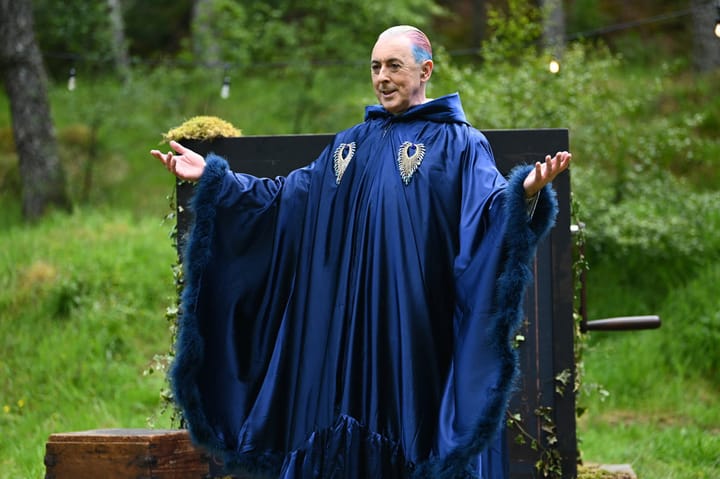


Comments ()